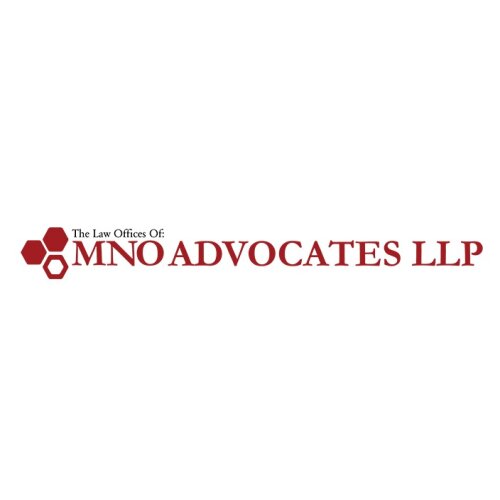Best Nonprofit & Charitable Organizations Lawyers in Kakamega
Share your needs with us, get contacted by law firms.
Free. Takes 2 min.
List of the best lawyers in Kakamega, Kenya
About Nonprofit & Charitable Organizations Law in Kakamega, Kenya
Nonprofit and charitable organizations play a crucial role in the social and economic development of Kakamega, Kenya. These organizations are typically driven by objectives such as education, poverty alleviation, health, and environmental conservation. In Kakamega, such organizations are governed by the legal framework set forth by the Laws of Kenya, specifically under the NGO Coordination Act, which regulates the registration, governance, and accountability of these entities. This regulatory environment ensures that organizations operate effectively while maintaining transparency and integrity in their activities.
Why You May Need a Lawyer
There are numerous situations where legal assistance may be essential for nonprofit and charitable organizations in Kakamega:
- Registration: The process of registering a nonprofit can be complex. Legal assistance ensures that all paperwork is correctly completed and submitted in compliance with regulatory requirements.
- Compliance: Organizations must adhere to various legal requirements regarding governance, taxation, and fundraising. Legal counsel can help navigate these obligations.
- Governance Issues: Establishing a compliant governance structure and advising on board responsibilities can prevent potential legal challenges.
- Dispute Resolution: Engaging in mediation or legal representation during disputes within or concerning the organization.
- Contracts: Drafting, reviewing, and negotiating contracts with third parties require a clear understanding of legal ramifications.
Local Laws Overview
The regulation of nonprofit and charitable organizations in Kakamega is primarily guided by national legislation which includes the NGO Coordination Act and the Public Benefit Organizations Act. Key aspects include:
- Registration: Organizations must register with the NGO Coordination Board and comply with statutory requirements for operation.
- Reporting: Regular submission of financial and annual reports to ensure transparency and accountability.
- Taxation: Nonprofits may be eligible for certain tax exemptions and it is crucial to understand these benefits.
- Governance: Adherence to good governance practices is required, including the composition and function of the board of directors.
Frequently Asked Questions
1. What types of entities qualify as nonprofit organizations in Kakamega?
Nonprofit entities may include NGOs, trusts, societies, and foundations with missions focused on social welfare, environment, education, and other charitable causes.
2. How do I register a nonprofit organization in Kakamega?
The process involves submitting an application to the NGO Coordination Board, which includes details about the organization’s purpose, governance structure, and founding members.
3. Are there exemptions from taxes for nonprofit organizations?
Yes, registered nonprofits may be exempt from some taxes, including income tax, but this requires an application to the Kenya Revenue Authority (KRA).
4. What are the reporting requirements for nonprofits in Kakamega?
Organizations must file annual returns, including financial statements and activity reports, with the NGO Coordination Board.
5. Can a nonprofit organization engage in commercial activities?
Yes, but any profits generated must be reinvested into the organization’s objectives rather than distributed to members or board directors.
6. How often should a nonprofit organization hold board meetings?
The frequency of board meetings can be stipulated in the organization's constitution, but they should occur regularly to ensure effective governance.
7. What are the consequences of non-compliance with nonprofit laws?
Non-compliance can lead to penalties, including fines, deregistration, and loss of tax-exempt status.
8. Can foreign NGOs operate in Kakamega?
Yes, but they must be registered with the NGO Coordination Board and fulfill specific requirements as stipulated by Kenyan law.
9. How is fundraising regulated for nonprofits in Kakamega?
Fundraising activities must be legally compliant, with clear records maintained for transparency and accountability.
10. What roles does the NGO Coordination Board play?
The board oversees the registration, regulation, and operations of NGOs to ensure accountability and compliance with Kenyan laws.
Additional Resources
For further information and assistance, consider reaching out to these resources:
- NGO Coordination Board
- Ministry of East African Community, Labour and Social Protection
- Kenya Revenue Authority (KRA)
- Law Society of Kenya
Next Steps
If you find yourself in need of legal assistance for your nonprofit or charitable organization in Kakamega, consider the following steps:
- Consult with a lawyer experienced in nonprofit law to better understand your legal requirements and obligations.
- Gather all necessary documents, including registration, governance, and financial records, before seeking legal advice.
- Engage with local or national regulatory bodies for guidance and compliance checks.
- Stay informed about any changes in legislation that may affect your organization.
Lawzana helps you find the best lawyers and law firms in Kakamega through a curated and pre-screened list of qualified legal professionals. Our platform offers rankings and detailed profiles of attorneys and law firms, allowing you to compare based on practice areas, including Nonprofit & Charitable Organizations, experience, and client feedback.
Each profile includes a description of the firm's areas of practice, client reviews, team members and partners, year of establishment, spoken languages, office locations, contact information, social media presence, and any published articles or resources. Most firms on our platform speak English and are experienced in both local and international legal matters.
Get a quote from top-rated law firms in Kakamega, Kenya — quickly, securely, and without unnecessary hassle.
Disclaimer:
The information provided on this page is for general informational purposes only and does not constitute legal advice. While we strive to ensure the accuracy and relevance of the content, legal information may change over time, and interpretations of the law can vary. You should always consult with a qualified legal professional for advice specific to your situation.
We disclaim all liability for actions taken or not taken based on the content of this page. If you believe any information is incorrect or outdated, please contact us, and we will review and update it where appropriate.








